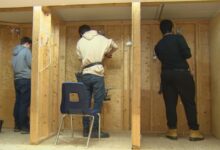In 46 years OLG has provided almost $55 billion to the people and province of Ontario to support key government priorities
Ontario boasts one of the largest lottery networks in North America and the Ontario’s first lottery was launched in mid 70’s. But, what happens with the money that Ontario Lottery and Gaming Corporation’s (OLG) makes? In a press release the OLG spokesman, Tony Bitonti, assures that the money benefits the Ontario population.
Bitonti explained that “each year proceeds from OLG’s operations also support communities that host casinos, Ontario First Nations, lottery retailers and local charities across the province”. OLG also provides $10 million in annual proceeds to support amateur athletes through the Quest for Gold Program and supports thousands of Ontario charities that are delivering critical services in their local communities and improving the lives of thousands of people across the province.

The gambling agency provided since 1975 almost “$55 billion to the people and province of Ontario to support key government priorities like health care; the treatment and prevention of problem gambling; and support for amateur athletes”, which means that OLG provides more than $1 billion for each year of activity.
Of course that all this data was collected before the pandemic, because with COVID-19 the gaming monopoly has closed, and the Ontario government gave a loan of $500 millions to OLG. At that time the former minister of Finance, Rod Philips.
Last year OLG generated more than $3 billion to provincial coffers but in 2020-21 the projections are not so good. Gambling accounts for around 17,600 jobs in Ontario, and while private-sector operators have laid off thousands of workers during the state of emergency, OLG has resisted that.
An estimated 60,000 jobs per year are attributed to the horse racing and breeding industry. A total $1.5 billion in wages and salaries in Ontario are sustained annually by total expenditures of the Ontario horse racing and breeding industry. This total is 50% larger than the $1 billion in 2000.
“OLG sells a variety of national, regional and INSTANT lottery games, offers digital gaming on OLG.ca and conducts and manages land-based gaming which includes casinos and Charitable Gaming (electronic bingo) across the province. We also help to support the horse racing industry in Ontario”.
The number of lotteries is very diverse, but they are not the main source of money: “Currently, OLG offers customers 19 lottery and sports games, such as LOTTO MAX, LOTTO 6/49, DAILY KENO, ONTARIO 49 and PROLINE, and approximately 95 INSTANT lottery products, such as PLINKO®, THE BIG SPIN, INSTANT BINGO and CASH FOR LIFE. These games are sold through nearly 10,000 independent retailers across the province. In the 2019-2020 fiscal year, these independent lottery retailers shared $300 million in commissions for selling and redeeming our lottery products”.
With pandemic, businesses had to be present on digital and OLG was no exception. “OLG also offers customers the option of playing our games digitally on OLG.ca, our internet gaming website. The site offers a variety of electronic slots and table games as well as many of our popular Lotto games such as LOTTO MAX, LOTTO 6/49, DAILY GRAND, ONTARIO 49, DAILY KENO and ENCORE, for play and purchase from any digital device. OLG is continually adding new, exciting, and innovative games. Currently, OLG.ca is the only legal gambling website in the province, offering entertainment seekers a safe, regulated online gambling experience”.
OLG is responsible for conducting and managing 27 casinos in Ontario and “the day-to-day operations of these gaming facilities are run by various service providers that are under contract with OLG. The gaming facilities employ more than 16,000 Ontarians and the service providers are investing billions of dollars in private capital to expand and build new casinos in the province”.
Here are some numbers, as an example, we will use Casino Woodbine. In the last report from 2019-20 activity, more than 7,5 million people had visited Casino Woodbine. Here the OLG employees more than 1,600 workers in full-time and part-time jobs and the average number of slots operating were 3,453.
In Ontario First Nations the municipalities and First Nations share revenue with OLG if they host a casino. “In the 2019-2020 fiscal year, OLG paid $161 million to these host municipalities and First Nations. Host municipalities also receive financial benefit from property tax revenue, development fees and other payments, and job creation”.
OLG is also responsible for conducting and managing 37 Charitable Gaming Centres operated by service providers in support of over 2,000 local charities across Ontario. These sites offer a variety of electronic bingo and break-open ticket games, in addition to the classic paper-based bingo play. Since 2005, Charitable Bingo & Gaming Centres have given back more than $285 million to their communities.
In order to help prevent and mitigate gambling problems the OLG has created the PlaySmart Program. The goal is to help all players better understand key gambling concepts, know how games work and base their play behaviour on informed choices. “OLG spent more than $13 million last year on its Responsible Gambling program, including PlaySmart Centres, education and technology, program delivery, staff training and self-exclusion. In addition, Ontario allocates approximately $38 million annually from OLG revenues to the Ministry of Health for problem gambling prevention, treatment and research, for a total of $51 million for responsible gambling education and programs. OLG’s PlaySmart program was identified by the World Lottery Association as a leader in global best RG practices and awarded Best Overall RG Program—the only program in the world to have won this award twice (2014 and 2018)”, said the note.
Ontario has the highest population of all Canadian provinces, and over 90% of residents in Southern Ontario are within a one-hour drive of a legal gaming establishment. Considering this last fact, it should come as no surprise that a 2011 poll found that 82.9% of adults within the province had admitted to gambling at least once during the calendar year. These are the legal forms of gambling: Casinos – ever a 25 land-based casinos are active in Ontario, and these range from privately-owned entities to charitable locations run by the government; Slot Machines- There are more of these gaming devices in Ontario than any other province in Canada; Horse Racing- These tracks enjoyed great success when slot machines were added in 1998, but their withdrawal by the government in 2013 has resulted in a massive downturn; Sports Betting- players may use the Pro-Line service to wager on multiple types of sports through the Internet or land-based lottery centers. At least two games must be wagered on, although the customer can choose from a number of betting options such as the point spread pr over/under. Lottery- Ontario boasts one of the largest lottery networks in North America, and in 2019 their fiscal revenue was almost $3 billion. Charitable Gaming- this includes raffles and bingo. The OLG oversees licensing of such games, and they also manage a number of eBingo websites. Along with various lottery games, bingo generates the largest amount of gaming revenue for Ontario.
In Ontario, the Alcohol and Gaming Commission of Ontario (AGCO) is responsible for regulating lotteries, internet gaming, casino games, and charitable gaming to ensure they are operated within the law.
Joana Leal/MS








Redes Sociais - Comentários